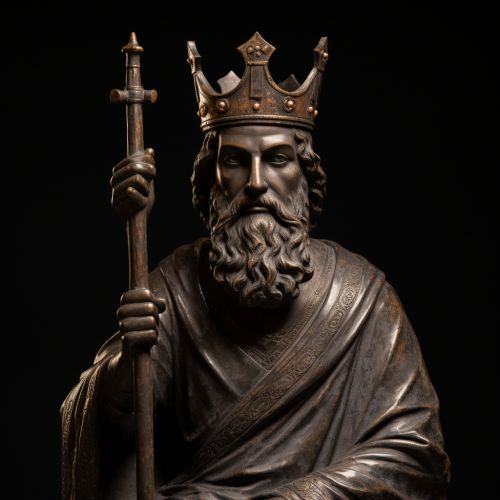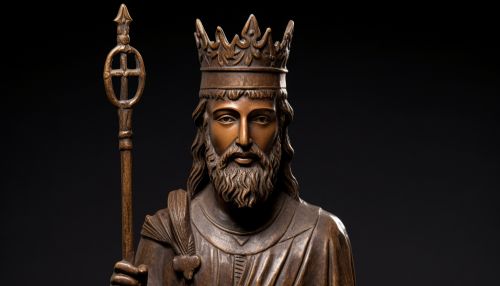Melqart
Origins and History
Melqart was a Phoenician deity, often identified with the Greek hero Herakles and the Roman god Hercules. The name Melqart translates to "King of the City," and he was considered the tutelary god of the Phoenician city of Tyre.


The earliest known references to Melqart come from inscriptions found in the ancient city of Tyre, dating back to the 9th century BCE. These inscriptions indicate that Melqart was worshipped as the chief deity of the city, and his cult was closely associated with the royal family.
Worship and Rituals
The worship of Melqart was widespread throughout the Phoenician colonies in the Mediterranean, including Carthage, where he was venerated as the city's founder. The main temple of Melqart in Tyre was considered one of the most important religious sites in the ancient Near East.
The rituals associated with the worship of Melqart included annual festivals, sacrifices, and processions. One of the most significant ceremonies was the 'Awakening of Melqart,' a ritual that symbolized the god's death and resurrection.
Iconography and Symbolism
In ancient art, Melqart is often depicted as a bearded man wearing a lion skin, similar to the Greek hero Herakles. This iconography reflects the syncretism between the Phoenician and Greek cultures. Melqart was also associated with the symbol of the palm tree, which represented his role as a life-giving deity.
Melqart in Classical Sources
Classical Greek and Roman sources often identified Melqart with Herakles and Hercules, respectively. This identification was not merely superficial but reflected a deep syncretism between the cultures. For instance, the Greek historian Herodotus mentioned that the temple of Melqart in Tyre was as old as Tyre itself, and he equated Melqart with Herakles.
Legacy
The cult of Melqart had a significant influence on the religious practices of the ancient Mediterranean world. The god's association with Herakles and Hercules facilitated the spread of his worship beyond the Phoenician colonies.
Even after the decline of the Phoenician civilization, the worship of Melqart continued in some form. In the Roman period, the god was still venerated in Tyre and other cities, reflecting the enduring legacy of the Phoenician culture.
